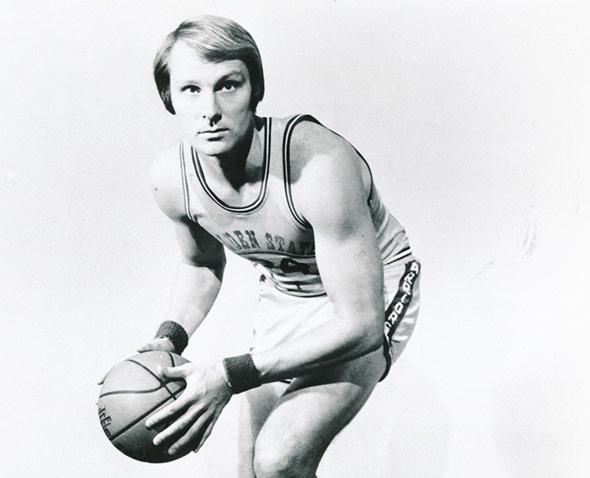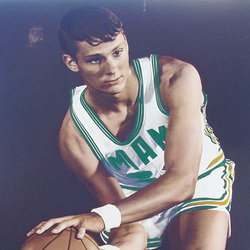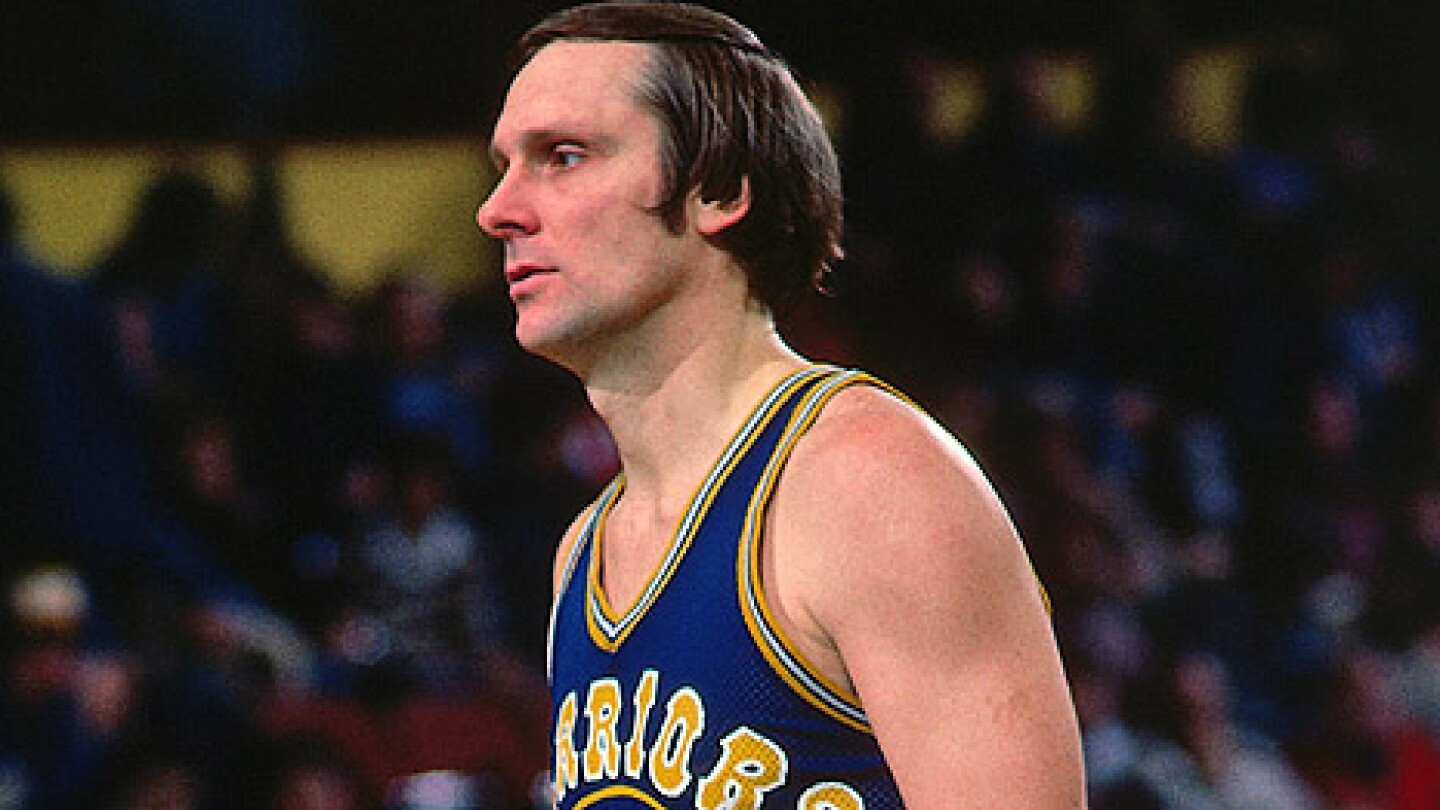Rick Barry (Part 2)
Rick Barry (Part 2)

Rick Barry's debut season with the Oakland Oaks in the ABA was marked by immediate success and dominance. Despite missing the previous season due to a knee injury, Barry returned to the court in spectacular fashion, leading the league in scoring with an average of 34.0 points per game. Under his leadership, the Oaks secured their first-ever ABA championship, becoming the first West Coast team to achieve such a feat in professional basketball history.
However, Barry's triumphant return was interrupted when he suffered a devastating knee injury during a game against the New York Nets. Despite attempting a comeback in January 1969, he aggravated the injury and was forced to sit out the remainder of the season after participating in only 35 games. Despite his shortened season, Barry's exceptional performance earned him a spot on the ABA All-Star team.
Despite Barry's absence, the Oaks continued their dominant run under coach Alex Hannum, finishing the season with an impressive 60–18 record. They clinched the Western Division title by a comfortable margin and proceeded to sweep the New Orleans Buccaneers in the division finals. In the championship round, they defeated the Indiana Pacers 4–1 to claim the league title.
Barry's confidence in his team's abilities was evident during the victory celebration, where he boldly declared the Oaks' superiority over the rest of the league. This statement reflected both his unwavering belief in his team's potential and his determination to maintain their winning momentum in the seasons to come.
Despite their success on the court, the Oakland Oaks faced challenges in attracting fans to their games, particularly due to Rick Barry's absence during the latter part of the season and competition with the more established Golden State Warriors in the same market. The Oaks struggled to draw crowds, averaging just 2,800 fans per home game at the Oakland-Alameda County Coliseum Arena, slightly above the league average. Pat Boone, the majority team owner at the time, incurred significant financial losses totaling over $2 million over two seasons and sought to divest from the basketball business.
In August 1968, the franchise was sold to a group led by Earl Foreman, a former owner of the Baltimore Bullets, who relocated the team to Washington, D.C., despite the absence of a suitable arena in the vicinity. Reluctantly, Barry joined the newly rebranded Washington Caps for the 1969–70 ABA season. Initially resistant to reporting to the team, Barry eventually joined them after missing the first 32 games. The Caps, competing in the Western Division, faced a demanding travel schedule due to the divisional alignment.
Despite Barry's delayed start and a knee injury that limited him to 52 games, he delivered exceptional performances on the court, averaging 27.7 points per game, the second-best in the league. The Caps finished the season with a respectable 44–40 record, securing third place in the Western Division. In the playoffs, they faced the Denver Rockets in the Western Division semifinals, where Barry's historic 52-point outburst in Game 7 remains the highest-scoring performance in a seventh and deciding game in professional basketball history, although the Caps fell short as the Rockets advanced with a 4–3 series victory./cdn.vox-cdn.com/uploads/chorus_image/image/70402656/497699988.0.jpg)
After the Washington Caps became the Virginia Squires following the 1969–70 season, Rick Barry expressed his dissatisfaction with playing in Virginia, stating that he did not want his children growing up with a Southern accent. Despite being featured on the cover of Sports Illustrated in a Squires jersey, Barry openly denounced the team. On September 1, 1970, the Squires traded Barry to the New York Nets for a draft pick and $200,000. While Barry's negative comments contributed to the decision, the primary reason for the trade was Squires owner Earl Foreman's financial troubles, prompting him to sell Barry to alleviate expenses.
Upon joining the New York Nets, Barry's playing time was limited to 59 games in the 1970–71 season due to a knee injury, but he still earned a spot on the ABA All-Star team. He continued to excel, leading the league in scoring with 29.4 points per game in the 1970–71 season and repeating as the scoring leader with 31.5 points per game in the 1971–72 season. Additionally, he led the ABA in free throw percentage during both seasons and set a league record for most consecutive free throws in one game with 23.
Despite Barry's individual success, the Nets finished fourth in the Eastern Division in the 1970–71 season and advanced to the playoffs, where they were defeated by the Virginia Squires in the Eastern Division semifinals. In the 1971–72 season, the Nets secured third place in the Eastern Division and advanced to the playoffs once again. They pulled off upsets against the Kentucky Colonels and the Virginia Squires to reach the ABA Finals but were ultimately defeated by the Indiana Pacers in six games.
Barry faced legal complications when a United States District Court judge issued a preliminary injunction on June 23, 1972, preventing him from playing for any team other than the Golden State Warriors after his contract with the Nets ended. This was due to a five-year contract Barry had signed in 1969. However, on October 6, 1972, the Nets released Barry, allowing him to return to the Warriors.
References
- "RICK BARRY HIRED AS CBA COACH". News & Record. January 24, 2015. Retrieved December 18, 2023.
- ^ "RICK BARRY FIRED AS CBA COACH". Chicago Tribune. March 8, 1994. Retrieved December 18, 2023.
- ^ "Rick Barry minor league basketball coaching records". Stats Crew. Retrieved December 18, 2023.
- ^ Heitner, Darren. "Professor of Sport Agency Management at Indiana University". Forbes. Archived from the original on September 3, 2014. Retrieved September 2, 2014.
- ^ "RE/MAX World Championship's 2005". Morgan Studios. Archived from the original on October 24, 2004. Retrieved June 8, 2006.
- ^ Cook, Bob (June 2004). "Kick Out the Sports!". Flak Magazine. Archived from the original on February 4, 2012. Retrieved February 8, 2007.
- ^ Thornton, Jerry (September 21, 2005). "Sportscasters Gone Wild". Barstool Sports. Archived from the original on May 9, 2006.
- a b c d Kornheiser, Tony (April 25, 1983). "A Voice Crying In The Wilderness". vault.si.com. Archived from the original on November 30, 2020. Retrieved December 24, 2020.
- ^ "Telepictures' "Catch Phrase" (page 120)" (PDF). Broadcasting [date=1985-01-14.
- ^ "Barry leaves afternoon radio show at KNBR". San Francisco Chronicle. August 14, 2006. Archived from the original on February 2, 2009. Retrieved September 9, 2008.
- ^ Gordon, Amanda. "A Basketball Legend Scores for Migdal Ohr and Children of Israel". NYSun.com. Archived from the original on June 3, 2008. Retrieved May 15, 2008.
- ^ Fennelly, Martin (March 14, 2017). "The other amazing athlete who raised Florida's Canyon Barry". Tampa Bay Times. Archived from the original on November 12, 2020. Retrieved March 7, 2021.
- ^ Martin, Michael (May 28, 2017). "Why Rick And Canyon Barry Stay True To The 'Granny Shot'". NPR.org. Archived from the original on September 23, 2022. Retrieved March 7, 2021.
- ^ Barry, Rick; Libby, Bill (January 1972). Confessions of a Basketball Gypsy: The Rick Barry Story. Prentice-Hall. ISBN 0131674455.
- ^ "Spurs announce basketball operations staff additions and promotions". NBA.com. September 17, 2018. Archived from the original on March 28, 2020. Retrieved March 31, 2020.







































